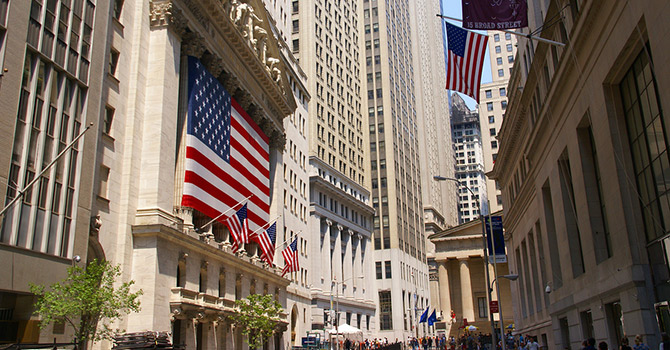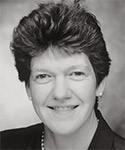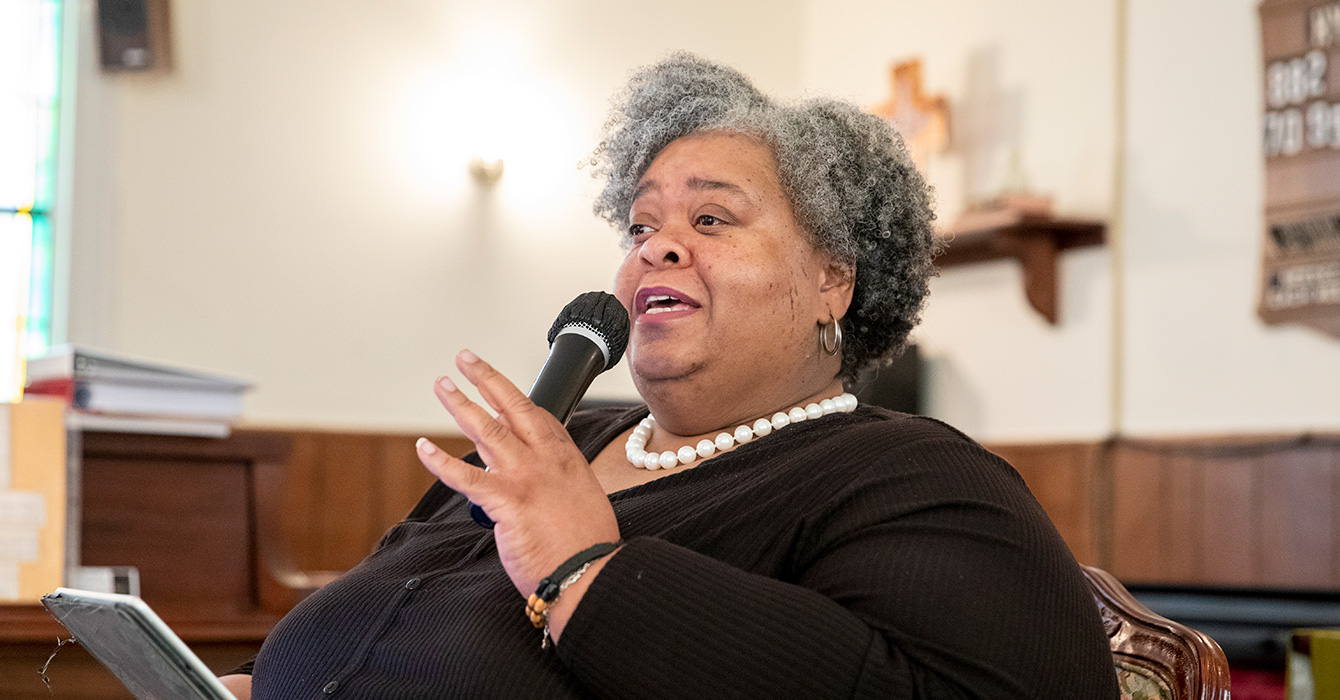Being a young corporate lawyer on Wall Street is exhilarating. Even if the ultimate benefits to society aren’t always clear, the “buzz” of doing deals, working on a team and building something big can be incredibly exciting. Believe it or not, profit making can be good, though it is sometimes hard to explain exactly why.
From a macroeconomic perspective, big business is about enhancing financial liquidity, creating jobs, improving products and offering consumers more choices. And as small-kick corporate achievements go, nothing beats ringing the bell at the New York Stock Exchange to open the market for a corporate client’s going-public IPO.
How do I know? Because I was that young lawyer once. For more than 20 years, I advised Wall Street corporations in finance, securities offerings, and mergers and acquisitions. Today, I live a very different life. I’m an ordained minister in the Presbyterian Church (U.S.A.), serving a New York congregation made up of people who might once have been my clients -- or my competition. Though I often marvel at the journey I have made, I don’t look back. The life I live now is far richer than I could ever have imagined on Wall Street.
For some, working on Wall Street never gets old. The adrenalin of deal making is addictive. For the very high flyers, it becomes all-consuming, often at the cost of marriages, relationships with children and personal health. Yet money-hungry college grads and newly minted MBAs still flock to Wall Street every year. They know the risks -- and the rewards.
For me, corporate America was fun for a very long time -- until a day came when I began to sense an emptiness in those blind concrete canyons of power and money. What changed? Maybe realizing that I was a mere ant, fungible and expendable, feeding a much bigger, insatiable machine. Or knowing, as a woman, that I could walk the corridors of power but men would always own them.
What was clear, though, was a small, inexplicable sense that I was being called elsewhere. It was a call that came from a sacred space. God started showing up in my life every day, in ways that I could not ignore. I became curious. I attended church more often. I hungered for spiritual connection. And the more I connected, the hungrier I became. I began to worship midweek. I joined Bible studies that engaged me, opening new worlds from ancient ones. I began to have dreams about leading worship -- high-anxiety dreams, in which I was invited to preach but showed up in the pulpit without my sermon.
At work, even as I practiced law, I grew increasingly concerned for the world and for my colleagues and clients and the personal struggles they shared with me far beyond legal matters. I realized as never before that lives were at stake every day. People were struggling.
Soon, I began to see every person as a life in the balance -- as a fragile, beloved creature of God. Maybe it was the birth of my own children or the many stories I heard of loss and regrets over not having spent enough time with a now-deceased loved one. Whatever the cause, I was no longer focused solely on getting deals done. Instead, as I looked around at all of us “cogs” in the wheel of money production, I could see beneath the Wall Street armor only vulnerable, quivering human beings. I began to change. I embraced my faith. I tried to understand the bigger picture of our human existence.
To span the gap between my work and this new world that was opening before me, I began “doing good.” In the legal world, “doing good” is called pro bono publico (“for the good of the public”) -- volunteer work to aid the indigent in legal matters. I also began looking for organizations I could help, often taking on work that had nothing to do with the law. During my lunch hour, for example, I picked up food “rescued” from restaurants and delivered it to a homeless shelter on the West Side -- in silk dress, heels and pearls. That food run became the best part of my week. But it was not enough.
I volunteered my time and legal work to not-for-profits. I advised a fledgling board of directors for a Head Start school program and helped them survive -- an experience more enriching than anything I had ever done for paying clients.
But it was still not enough. God was at work in me. I discovered the richness of Scripture and the beauty of sacred music and a deep joy in worship. It changed my world. When my pastors encouraged me to think about seminary, everything about that idea seemed right.
I had felt a glimmer of a call when I was a teenager and again when I majored in religious studies in college, and both times I turned away and did not answer. But now, the deep spiritual sense that broke through my fascination with Wall Street was a blinding light that beckoned me to follow Christ not only as a disciple but also as a leader of others still finding their way. I quit my job. I changed my name. I went to seminary and joined the ranks of ordained ministers -- and never looked back.
I am grateful for the financial security that my years of law practice brought me, but now I find my treasure in ministry. I don’t doubt that my time is well-spent, that my talents are appropriately shared, or that I am exactly where God intends me to be.
I’ve been to those shinier spaces, those intoxicating places -- the boardrooms and the bell ringings and the headline-news megadeals. And I can tell you that love is not there. Love is with the people on the outside looking in, people not so unlike me or any of the rest of us.
That’s how Christ calls disciples: by leading us to love. Following God’s call -- loving the outcast, helping the heartbroken, welcoming the stranger -- we are transformed and find our true selves.









